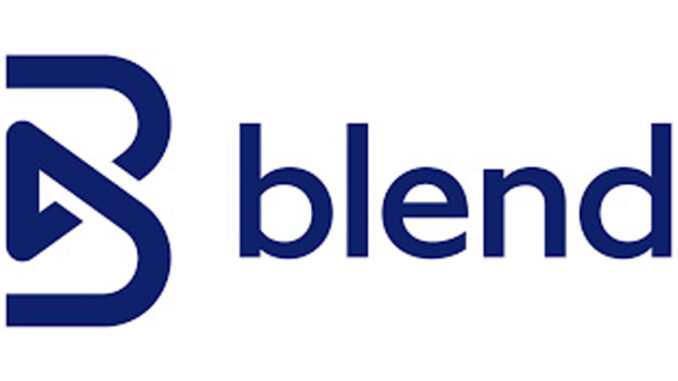
Mortgage tech firm Blend Labs continued to narrow its financial losses in the third quarter, driven by strong growth in its consumer banking business.
Its mortgage business outperformed the broader origination market and the company reduced cash burn, putting the firm on track to its goal of reaching non-GAAP profitability by next year.
The San Francisco-based company reported a non-GAAP net loss of $21.4 million in the third quarter, compared to a non-GAAP net loss of $22.7 million in Q2 and a non-GAAP net loss of $42.8 million year over year.
The company’s GAAP net loss in Q3 was $41.8 million, slightly up from a GAAP net loss of $41.5 million in the previous quarter, according to its 8-K filing with the Securities and Exchange Commission (SEC).
“Our third quarter results represent execution on both our revenue and operating loss targets for the third consecutive quarter. We are more focused than ever on delivering for our customers in a way that aligns with our long-term vision, and we believe we are in a strong position to continue our pace of innovation with speed, scale, and efficiency,” said Nima Ghamsari, head of Blend.
The company posted $40.6 million in revenues in Q3, within the range of $40 million to $42 million provided during its investor day in September.
Revenue consisted of platform revenue of $28.6 million and title revenue of $11.9 million.
Blend’s platform segment includes the mortgage suite, consumer banking suite and professional services.
The mortgage banking suite revenue declined by 11% year over year to $20.3 million despite a 14% mortgage volume drop over the same period as reported by the Mortgage Bankers Association (MBA).
To offer competitive price points for cost-conscious independent mortgage banks, Blend launched Blend IMB Essentials, a lower-cost edition of its mortgage suite that combines all the critical benefits of Blend, Ghamsari noted.
The mortgage tech firm continued to invest in add-on products for lenders in the third quarter, a strategy to “ensure success of existing customers because those customers end up becoming the reference for other banks and lenders to sign up with Blend,” Ghamsari told analysts.
Blend’s new product and services included an AI-powered chat tool ‘Copilot’ aimed at executing precise tasks and deconstructing nuanced questions borrowers have.
As a result, growing usage of add-on products drove Blend’s mortgage suite economic value per funded loan to $86 in the third quarter, up from $77 in Q3 2022.
Consumer banking suite revenue rose in Q3 by 18% over a year ago to $6.2 million. Professional services revenue increased by 18% to $2.1 million during the same period.
“This is quickly becoming the biggest revenue opportunity for us next year,” Ghamsari emphasized.
“As we convert more and more of our customers to Blend Builder, they’re well positioned with our technology to grow their business and their deposit bases, increasing revenue and profitability as a result, which is so important to us to be able to support that kind of success,” he added.
On track to profitability in 2024
On the expenses side, non-GAAP operating costs in Q3 totaled $38.2 million compared to $58.7 million in the same period the year prior.
“The improvement in our non-GAAP operating loss met our expectations benefiting from resilient revenue in our mortgage business, sustained higher margins and the adoption of greater financial leverage through continued improvement and our operating efficiency,” Amir Jafari, Blend’s head of finance and administration, told analysts.
The third quarter marked another period of improvement in the firm’s cash burn of $25.9 million, which was about half of the $50.9 million cash burn the same quarter in 2022.
“Our actions to operate with efficiency in combination with our resilient top line and improved margins are having a real impact as we inflect towards positive cash generation,” Jafari said.
Executives had set a goal of achieving positive cash flow by 2026 in its investor day in September.
As of Sept. 30, Blend has cash, cash equivalents and marketable securities, including restricted cash, totaling $252.3 million. The company has a total debt outstanding of $225 million in the form of the company’s five-year term loan.
Looking ahead, the mortgage tech firm estimates decreased non-GAAP net operating loss between $17 million and $14 million in Q4.
“While the market conditions are sending signs the industry volumes may remain lower in the short term, we are confident our strategy is well suited for the current environment, and will make us well positioned for when the industry conditions ultimately normalize,” Ghamsari said.



